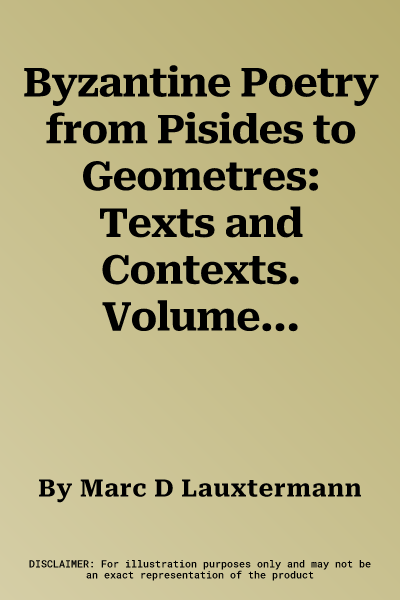Marc D Lauxtermann
(Author)Byzantine Poetry from Pisides to Geometres: Texts and Contexts. Volume TwoPaperback, 28 January 2019

Qty
1
Turbo
Ships in 2 - 3 days
Only 5 left
Free Delivery
Cash on Delivery
15 Days
Free Returns
Secure Checkout

Part of Series
Wiener Byzantinistische Studien
Print Length
431 pages
Language
English
Publisher
Austrian Academy of Sciences Press
Date Published
28 Jan 2019
ISBN-10
3700181264
ISBN-13
9783700181262
Description
Product Details
Author:
Book Format:
Paperback
Country of Origin:
US
Date Published:
28 January 2019
Genre:
Medieval (500-1453) Studies
ISBN-10:
3700181264
ISBN-13:
9783700181262
Language:
English
Location:
Vienna
Pages:
431
Publisher:
Weight:
821 gm